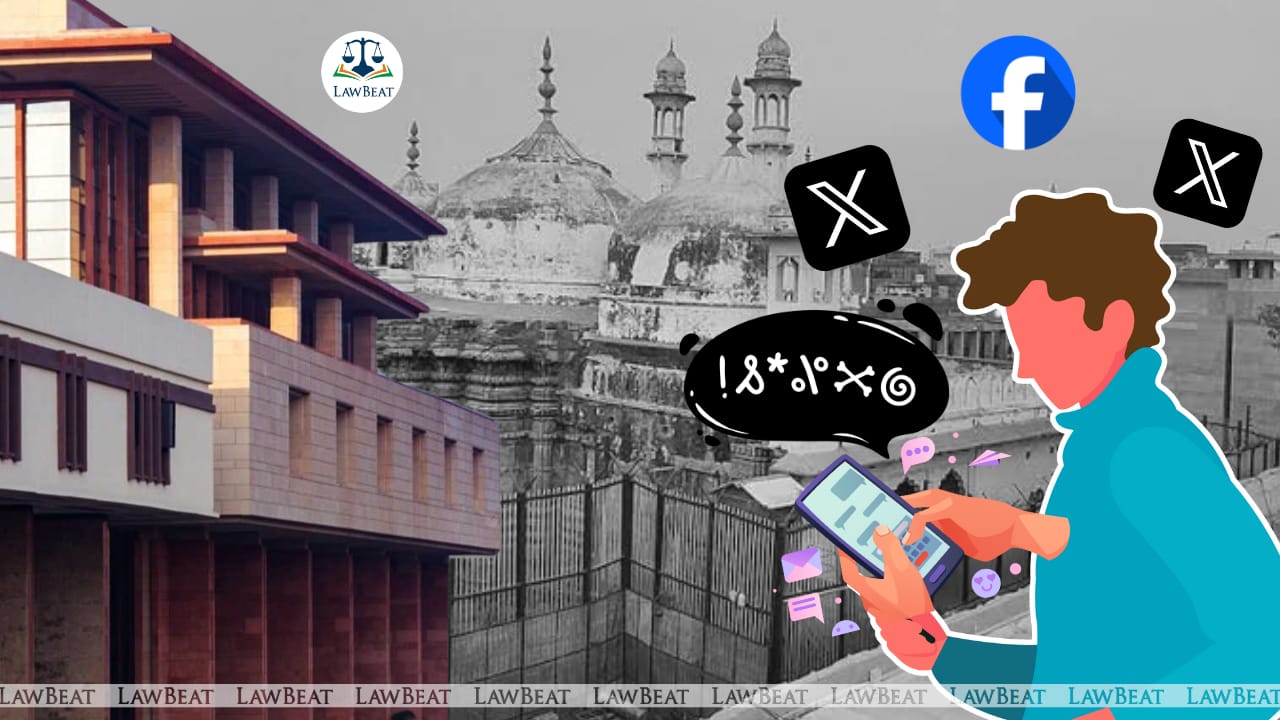Delhi HC Refuses to Quash FIR Against Man For Hurting Hindu Sentiments By Derogatory Remarks On Shiva Linga

The court ruled that that the act of the petitioner constituted a misuse of his right to free speech and caused sufficient grounds for the invocation of Sections 153A and 295A IPC
The High Court of Delhi has refused to quash a First Information Report (FIR) lodged against a man for an allegedly offensive social media post about the “Shiva Linga”, a Hindu deity. The court held that the comments were made with malicious intent and were likely to promote enmity between communities and insult religious beliefs.
The case against the petitioner, Dr. Ratan Lal, an Assistant Professor of History at Hindu College, University of Delhi, arose over a social media post made on 14th May, 2022 on “X” (formerly Twitter), and his Facebook account regarding the presence of the “Shiva Linga‟ like structure found in the Gyanvapi Mosque in Varanasi, Uttar Pradesh. The said tweet/post read : “Yadi yeh Shiv Ling hai to Lagta hai shayad Shiv ji ka bhi khatna kar diya gaya tha” (if this is ‘Shiva Linga’ it seems Lord Shiva was subjected to circumcision). This post, laden with contentious remarks, quickly gained traction online, receiving around 1,000 comments and over 270 shares. Following the post, an FIR was registered against the petitioner under Sections 153A (Promoting enmity between different groups on grounds of religion, race, place of birth, residence) and 295A (Deliberate and malicious acts, intended to outrage religious feelings of any class by insulting its religion or religious beliefs) of the Indian Penal Code (IPC).
The petitioner argued that the post was made in his capacity as a historian and was not intended to hurt religious sentiments. Asserting his fundamental right to free speech under Article 19(1)(a) of the Constitution, he contended that there was no deliberate intent to provoke or insult. Furthermore, he argued that the provisions under Sections 153A and 295A IPC were inapplicable as there was no actual disruption of public order.
A Single judge bench comprising Justice Chandra Dhari Singh, rejected the contentions of the petitioner, ruling that the comments made by him attracted the offences laid down under Sections 153A and 295A of the IPC.
The court observed : “whatever content was posted by the petitioner not only hurts the religious sentiments of the complainant but also promotes hatred, enmity and communal tensions among two different communities. Moreover, the act of the petitioner by making repeated comments, even after registration of the FIR further shows the deliberate and criminal act of the petitioner which definitely attracts the applicability of Sections 153A and 295A of the IPC.”
Referencing the “Shiv Puran Vidhweshwar Samhita”, explained the significance of the “Shiva Linga”, to underscore the cultural and spiritual sensitivity breached by the post. “It is obvious that the act and remarks made by the petitioner are contrary to the beliefs and customs followed and practiced by the worshippers and believers of “Lord Shiva/Shiva Linga””, the court noted.
The court stated that the petitioner, being an educator and a historian, holds a special responsibility to society and should be cautious in public discourse. It was further observed that freedom of speech is not absolute and is subject to reasonable restrictions under Article 19(2).
The court remarked: “the petitioner has created disturbance of the harmony of the society and this Court has also found that the said tweet/post were made with the intention to hurt the sentiments of a large number of the society and no person being a Professor, Teacher, or an intellectual has the right to make such type of comments, tweets or posts as the freedom of speech and expression or any type of freedom is not absolute.”
The court also rejected the argument that the absence of unrest negated the post's criminality, stating that “merely stating that no unrest or disharmony happened in the society cannot be a ground for quashing of the impugned FIR registered under Sections 153A and 295A of the IPC.” The court emphasised that the criminality of the petitioner’s act lies in the intent and foresight of potentially inciting disturbance and disharmony, regardless of whether unrest actually occurred.
In light of these findings, the court dismissed the petition and directed that the criminal proceedings continue as prima facie a case warranting investigation was made out.
Cause Title: Dr. Ratan Lal v State Government of NCT of Delhi [CRL.M.C. 7336/2023]
Appearance: Advocates Aditya Kumar Choudhary, Sandeep Pandey, Aditya Anand Singh and Anurag Yadav - for the Petitioner; and Yudhvir Singh Chauhan, APP for the State and Mr. Shiwal Bhalla, Respondent No.2 in person.
